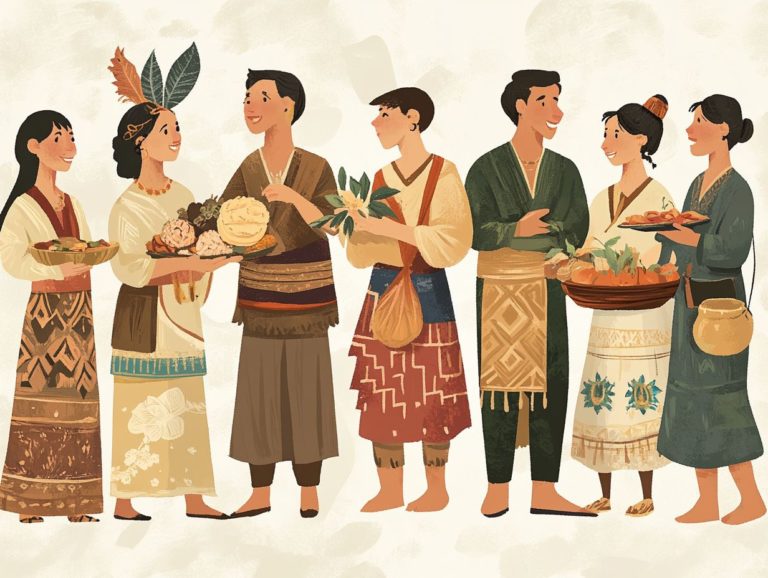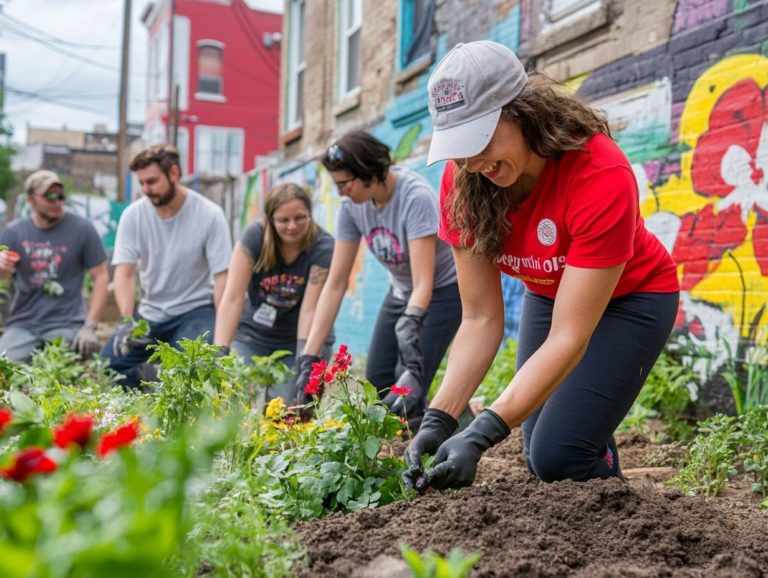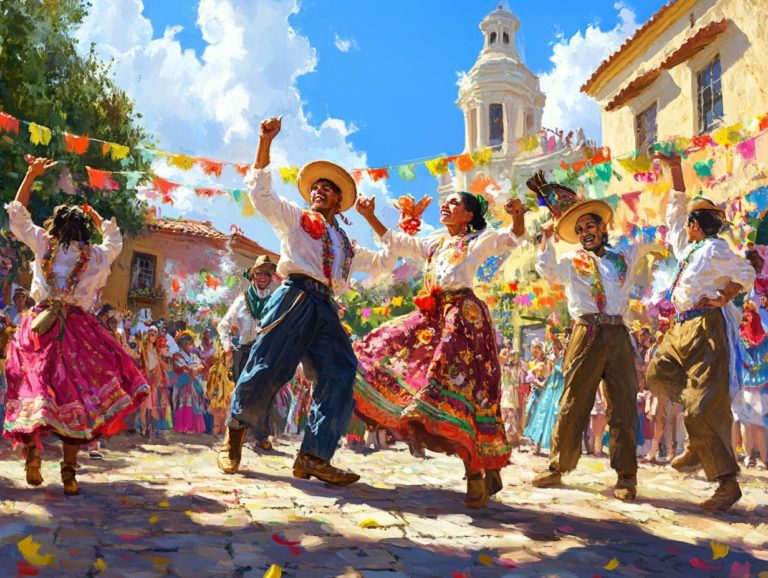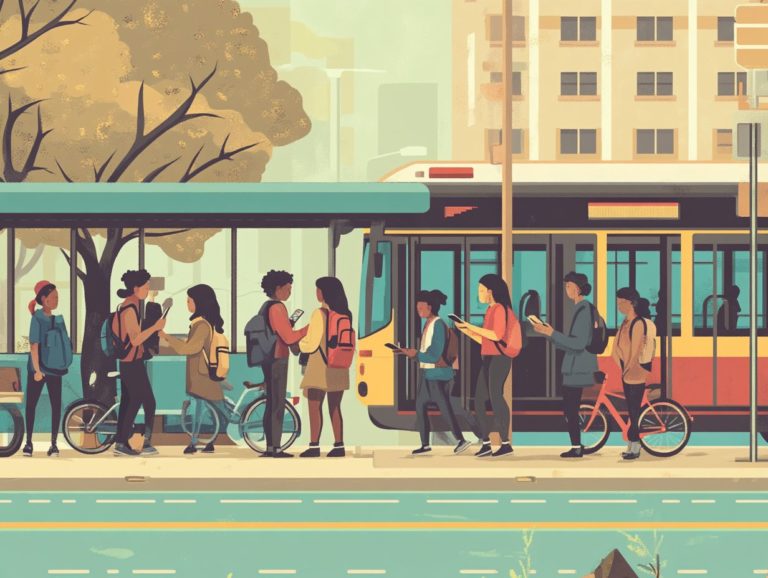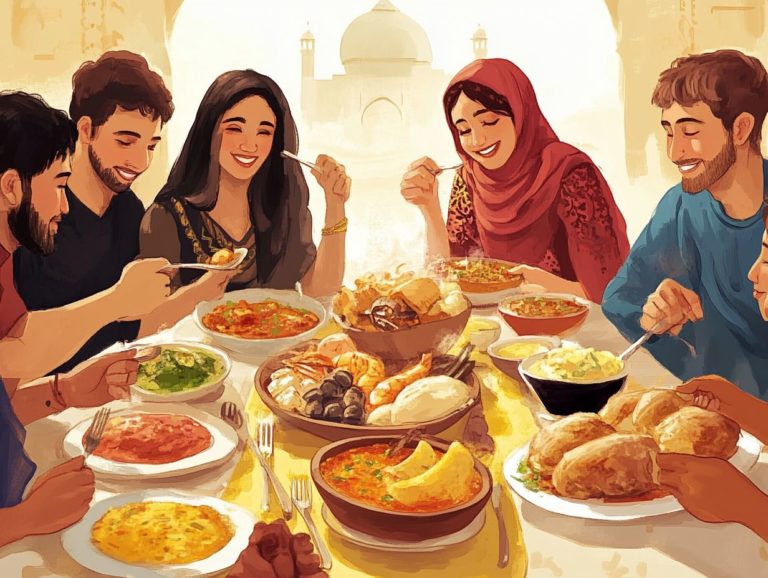Understanding Local Customs: A Student’s Guide
Navigating a new culture can be exciting but challenging for students studying abroad.
Getting to know local customs enriches your experience and builds respect and connection within the community.
This guide explores the importance of local customs. It highlights traditions from around the world and offers practical tips on how to learn and adapt seamlessly.
By embracing cultural differences, you can truly make the most of your international adventure.
Contents
- Key Takeaways:
- What are Local Customs?
- Why Understanding Local Customs is Important
- Common Local Customs Around the World
- How to Learn About Local Customs
- Navigating Cultural Differences
- Frequently Asked Questions
- What is the purpose of Understanding Local Customs: A Student’s Guide?
- Why is it important for students to understand local customs?
- What are some examples of local customs that students should be aware of?
- How can students learn about local customs?
- What are some potential consequences of not understanding local customs?
- How can understanding local customs benefit students in the long run?
Key Takeaways:
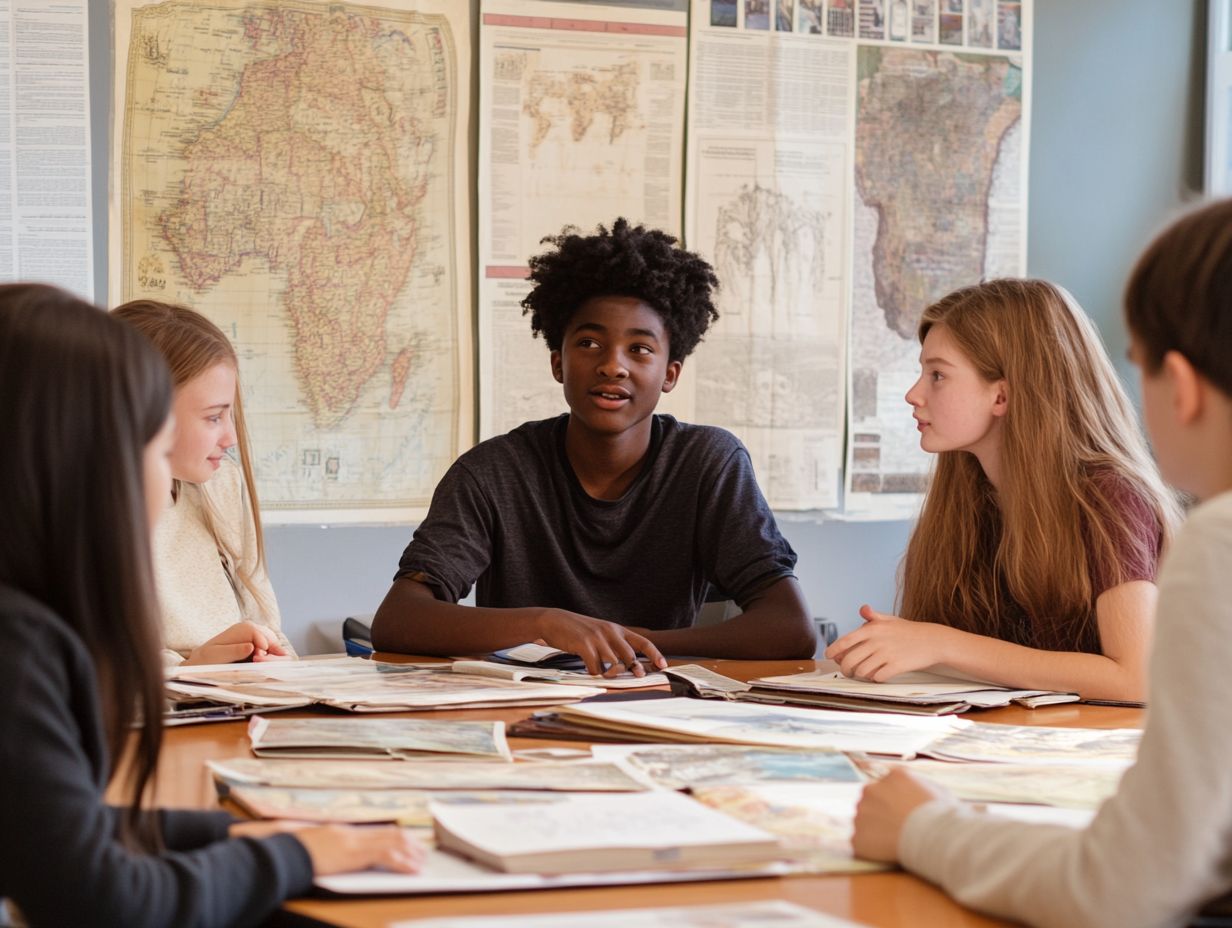
- Being aware of local customs is crucial for students studying abroad, as it helps foster cultural understanding and respect.
- Common local customs vary around the world and include cultural traditions and practices that may differ from what you’re used to.
- To learn about local customs, do your research and observe the behavior of locals. Respect and adapt to cultural differences to avoid misunderstandings.
What are Local Customs?
Local customs in Belfast, Northern Ireland, are a unique mix of cultural norms, traditions, and historical contexts that shape the daily lives of its residents.
For international students, understanding these customs is vital as they navigate the usual ways people act and interact in this vibrant city.
By getting to know the historical significance of events like St. Patrick’s Day, local slang, and the rich Irish language, students can uncover deep insights into Belfast’s culture.
Why Understanding Local Customs is Important
As an international student, understanding local customs is key to your success. It directly influences how you handle integration challenges and communicate respectfully within the local community.
Being mindful of cultural sensitivities allows you to engage more effectively in classroom discussions, join community events, and build meaningful relationships with your peers. Recognizing the significance of greetings like the varying levels of formality or the importance of eye contact can help you avoid misunderstandings and promote inclusivity.
Familiarizing yourself with local traditions and holidays lets you participate actively, enriching your educational experience. Appreciating these customs enhances your understanding and creates opportunities for deeper interactions, paving the way for a more supportive environment.
Benefits for Students Studying Abroad
Studying abroad offers a wealth of benefits, especially when it comes to immersing yourself in local culture and engaging in community projects.
As you connect with peers from diverse backgrounds, you ll form friendships that can last a lifetime while expanding your personal network an invaluable asset for future career opportunities.
Getting involved in local cultural events like Belfast Pride and Orangefest lets you celebrate inclusivity and diversity, deepening your understanding of social dynamics.
These experiences enhance your cultural awareness and promote personal growth by challenging your preconceived notions and fostering empathy, giving you a more nuanced perspective of the world.
Common Local Customs Around the World
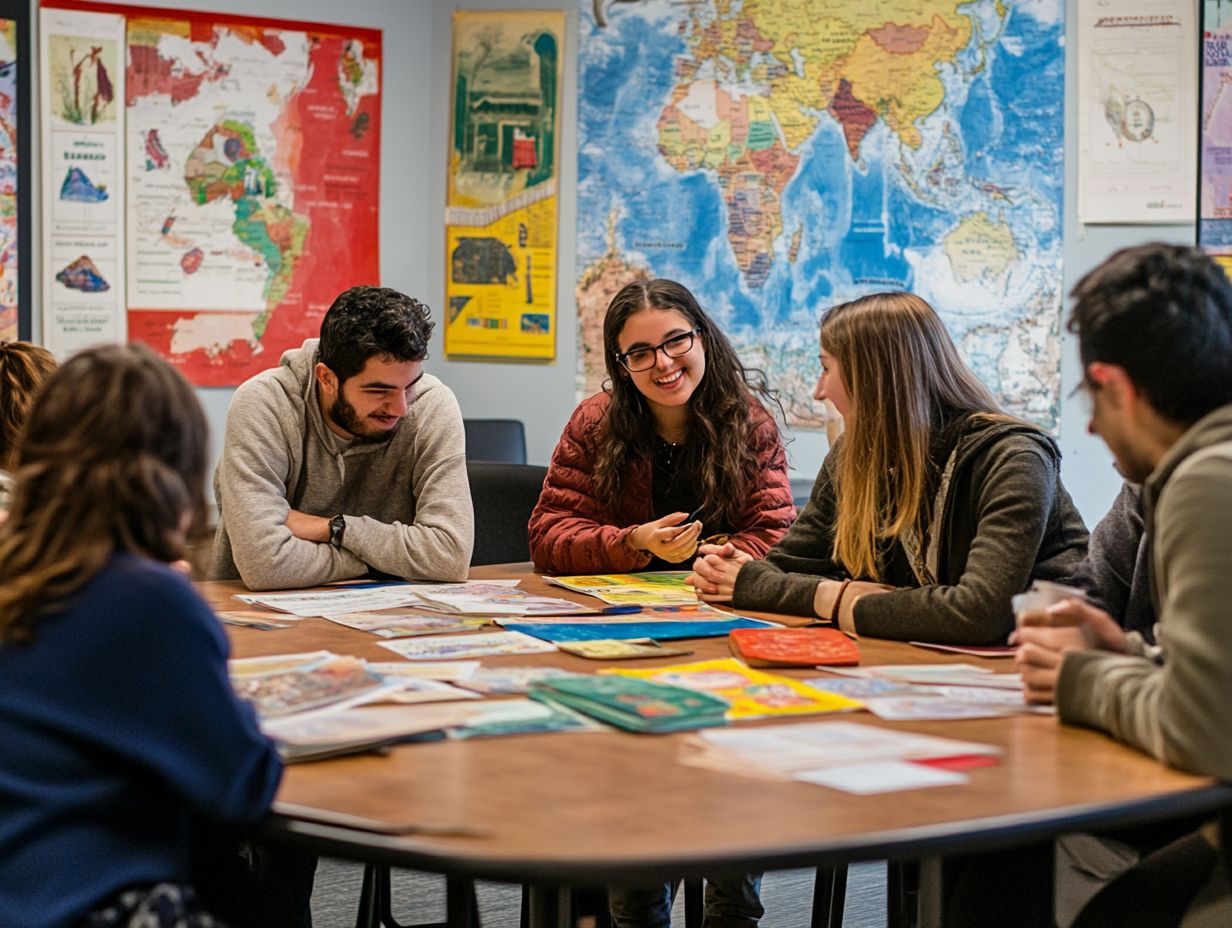
Across the globe, common local customs create a rich tapestry of cultural traditions and historical complexities that shape the unique identities of each region.
For example, the vibrant Diwali celebrations in India, known as the festival of lights, illuminate themes of renewal and triumph over darkness. In contrast, the solemn observance of Day of the Dead in Mexico honors beloved departed souls through colorful altars and spirited gatherings, each practice filled with profound cultural significance.
Traditional tea ceremonies in Japan embody a philosophy of mindfulness and aesthetics. This contrasts with the lively street festivals in Brazil, which celebrate life and community spirit with exuberance.
These diverse cultural expressions invite you to appreciate how societies articulate their values, beliefs, and connections to their histories.
Cultural Traditions and Practices
Cultural traditions and practices, like local festivals, play a vital role in shaping community identity and reflecting the rich historical context of your surroundings.
These events unite diverse groups, fostering social dynamics that strengthen bonds among community members. Take St. Patrick’s Day celebrations; they show how cultural heritage can bring people together through vibrant parades, lively music, and traditional foods, creating an inclusive atmosphere.
Local festivals, whether celebrating a bountiful harvest or commemorating significant historical events, serve as platforms for storytelling and shared experiences. They encourage participation across generations, ensuring that values and customs are passed down.
Ultimately, these traditions cultivate a thrilling sense of belonging, allowing you to connect deeply with your cultural roots and one another.
How to Learn About Local Customs
Understanding local customs includes learning the language, doing research, and getting involved in the community. This approach grants you a well-rounded grasp of your new surroundings.
As you explore different avenues, immerse yourself in the intricate cultural tapestry around you. Using language apps like Duolingo can be a game-changer for mastering Irish Gaelic, enabling you to engage more meaningfully with local speakers.
Participate in workshops and educational programs to enhance your language skills and understand customs and traditions that might otherwise remain elusive. You can also consume local media radio broadcasts, newspapers, or television for further insight into the daily lives and values of the community.
Research and Observation Techniques
Effective research and observation techniques significantly enhance your understanding of cultural norms and social interactions within your host community.
By attending local events, you gain firsthand exposure to the unique traditions and practices that define the area. Engaging in community gatherings, such as festivals or holidays, allows you to witness vibrant celebrations and connect with locals, forging meaningful relationships.
Participate in workshops or seminars focused on the historical context of these customs to deepen your appreciation and foster a greater sense of belonging. Through active participation and thoughtful observation, you can develop a richer perspective on the cultural tapestry of your new environment.
Ready to explore local customs? Dive into the vibrant culture and discover the rich traditions waiting for you!
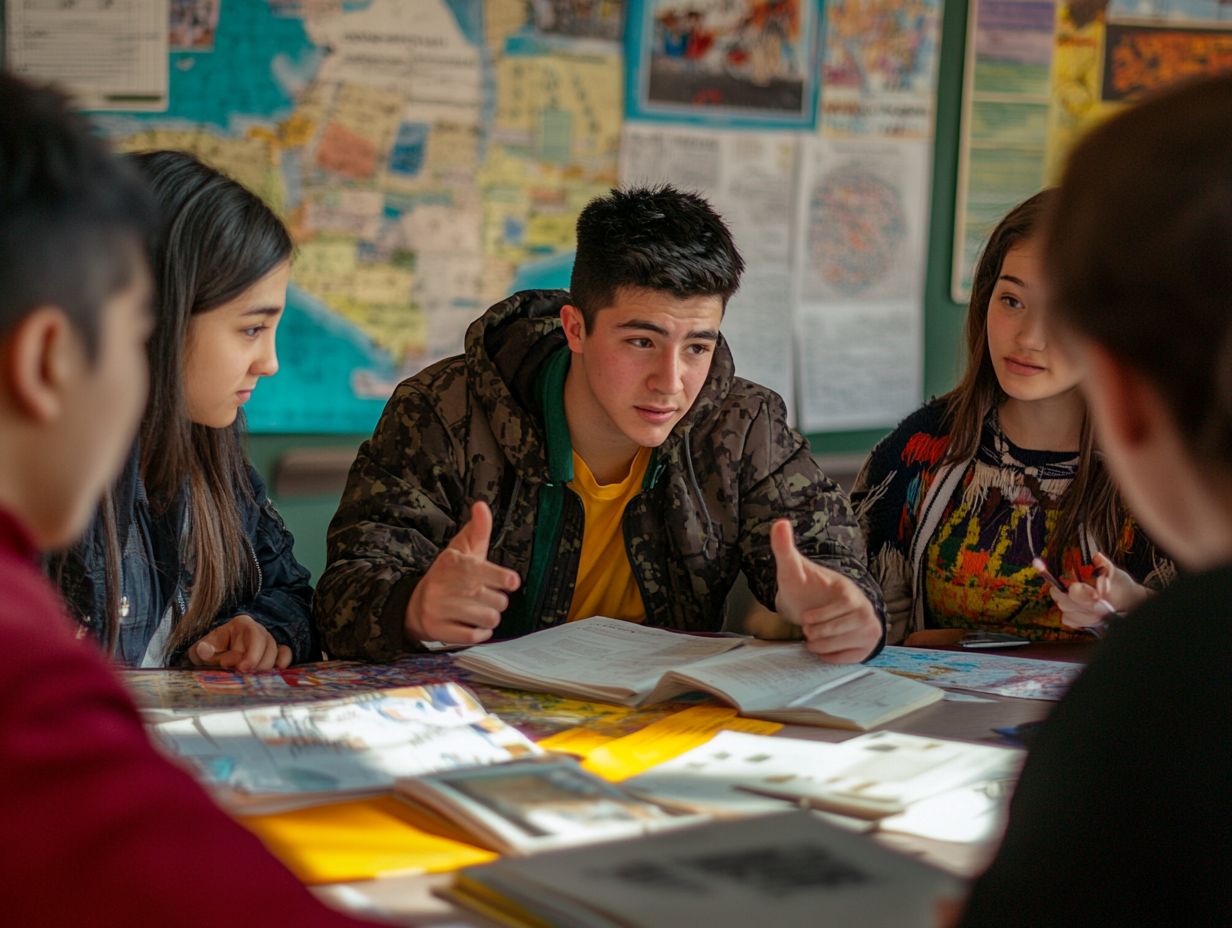
Navigating cultural differences is an essential skill for you as an international student. It helps you overcome integration challenges and understand the unique social etiquette of your host country.
Mastering this skill not only aids your personal growth but also makes for a smoother transition into your new environment. By recognizing and appreciating local customs whether it’s greetings, dining etiquette, or community celebrations you can forge meaningful connections that enrich your experience abroad.
Embracing language differences is equally important. Understanding key phrases and colloquialisms can bridge communication gaps and improve your interactions. Striking a balance between honoring your own identity and adapting to new social norms is crucial.
Engaging with local communities through volunteering or joining cultural exchange programs will help you create a supportive network that aids both adaptation and self-expression.
Tips for Respecting and Adapting to Local Customs
Respectful communication and cultural sensitivities are essential for you as an international student. They help you adapt to local customs and engage with your community meaningfully.
Understanding the nuances of social interactions can greatly enhance your experience abroad. Taking the time to explore local traditions, greetings, and etiquette not only bridges cultural gaps but also fosters genuine connections. For example, participating in community activities like local festivals or volunteering provides immersive learning experiences and showcases your appreciation for the host culture.
Being open to feedback from local peers makes interactions easier, enriching both your academic and social lives while deepening your sense of belonging in this new environment.
Frequently Asked Questions
What is the purpose of Understanding Local Customs: A Student’s Guide?
The purpose of this guide is to provide students with a comprehensive understanding of the different customs and traditions that exist in various local communities around the world. Specifically, it includes insights on understanding local dress codes to help students navigate unfamiliar cultural situations and avoid potential misunderstandings or conflicts.
Why is it important for students to understand local customs?
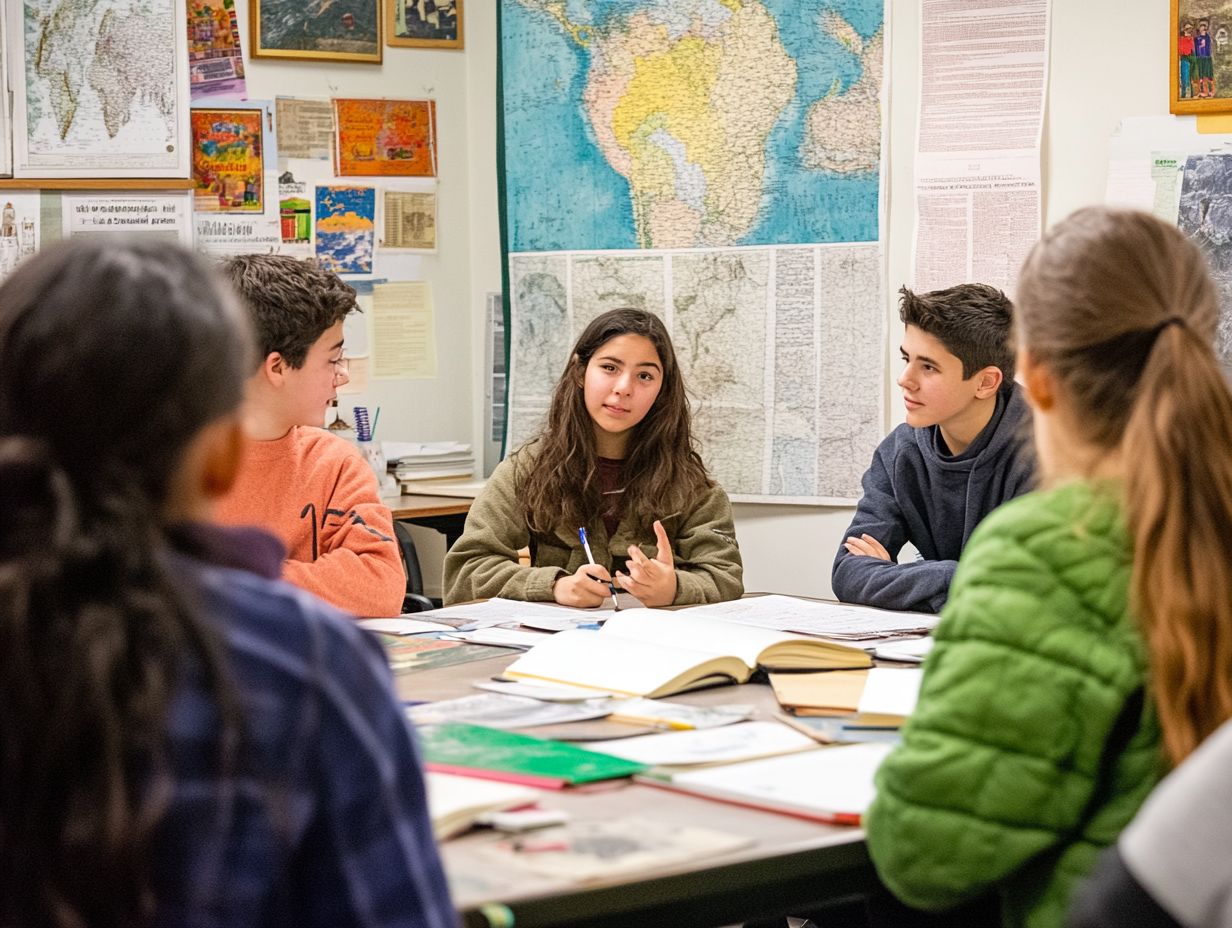
Understanding local customs is crucial for students studying or traveling abroad. It allows them to show respect and avoid offending locals. Moreover, it helps students build meaningful connections with people from different backgrounds.
What are some examples of local customs that students should be aware of?
Local customs can vary greatly depending on the country or community. Some common examples include greetings and gestures, dress codes, dining etiquette, and acceptable forms of communication. It is important for students to research and learn about these customs before visiting a new place.
How can students learn about local customs?
Students can learn about local customs through various sources such as guidebooks, online resources, and conversations with locals. Participating in cultural activities and events is also helpful. Be sure to ask questions and observe the behavior of people in the local community.
What are some potential consequences of not understanding local customs?
Not understanding local customs can lead to misunderstandings, conflicts, and even legal issues. It can create a negative impression and hinder a student’s ability to fully immerse themselves in a new culture. Therefore, being aware and respectful of local customs is important.
How can understanding local customs benefit students in the long run?
Understanding local customs can broaden a student’s perspective and enhance their cultural competence (the ability to understand and interact effectively with people from different cultures). This skill is vital in today’s globalized world. It also helps students develop empathy, adaptability, and communication skills, making them more successful in both academic and professional settings.
Explore your new community today!

